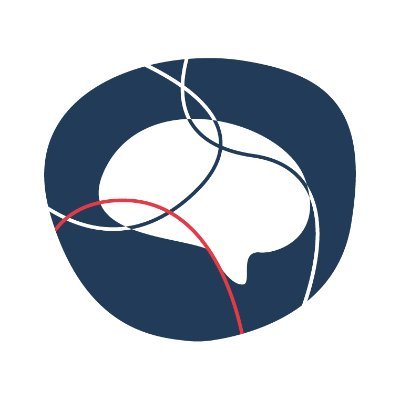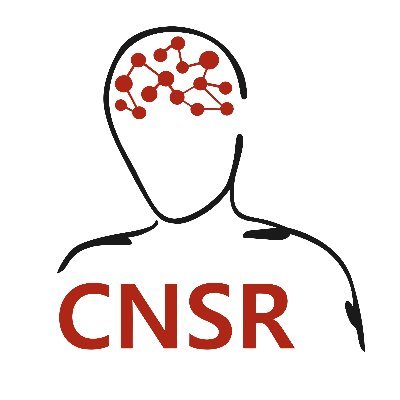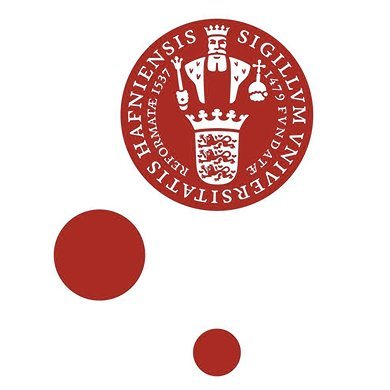
Kamilla Woznica Miskowiak
@kamillawm
Followers
235
Following
55
Media
15
Statuses
104
Kamilla Woznica Miskowiak, Professor of Cognitive Neuropsychiatry, Dept. Psychology, University of Copenhagen, Mental Health Services, Capital Region of Denmark
Copenhagen, Denmark
Joined December 2012
Enjoying my time at the ISBD meeting in Iceland, reconnecting with colleagues from around the world! 🌍 Thrilled to finally meet Dr Tamsyn Van Rheenen in person after eight years of collaboration on the ISBD Targeting Cognition Task Force. #ISBD2024 #BipolarDisorder #Cognition
0
1
11
Great to get the Scientific Programme Committee together yesterday to finalise the 2024 @ECNPtweets Congress in Milan. We are looking forward to sharing what we hope will be a diverse and exciting programme #ECNP2024
2
5
35
Memory is an important cognitive function often affected in psychiatric disorders. In a new study using the Danish registers, we found that poor memory is associated with the risk of subsequent psychiatric hospitalisation. Read more (in Danish) here: https://t.co/ADWKnS726q
avbc.me
Short Link - Transform your long, messy URLs into short and shareable links.
1
1
5
Can altitude-like hypoxia improve cognition? Check out this podcast (in Danish) with Professor @kamillawm talking about cognition and the ALTIBRAIN project supported by the @ERC_Research!
0
2
3
0
1
2
New study lead by @CecilieLemvigh & Karen Ambrosen in collaboration with the @NEADCentre. We investigated cognitive subgroups across schizophrenia and bipolar in the early phase of the illnesses. A special thanks to @hanne_kjaerstad & @kamillawm for great teamwork! 👌 Link ⬇
2
1
7
Busy day in Amsterdam- Great to be working with such a fantastic group of people to shape the 37th ECNP congress in Milan in September 2024
Today, the Scientific Programme Committee (SPC) members are meeting in Amsterdam, the Netherlands. They are preparing an outstanding scientific programme for the 37th ECNP Congress, 21-24 September 2024, Milan, Italy! #ECNP2024 #neuroscience #psychiatry #BrainDisorders @jfcryan
1
5
42
Check out this new article in the Copenhagen University Newspaper about our ALTIBRAIN project (in Danish)! https://t.co/F2Ul5omfjx
uniavisen.dk
Hvis man kan give hjernen mindre ilt via den luft, vi indånder, kan den måske helbrede sig selv hos mennesker, der lider af hukommelses- eller koncentrationsbesvær ved psykiatriske sygdomme. Nyt...
0
1
4
📣 New publication from #NEADcentre: Here, we review the grounds for exploiting moderate inspiratory plus functional hypoxia to treat patients with neuropsychiatric disorders as in our current #ALTIBRAIN trial.
onlinelibrary.wiley.com
This article review presents hints of how inspiratory O2 manipulations can potentially contribute to enhanced brain function. It thereby provides the ground for exploiting moderate inspiratory plus...
0
2
4
Jeg glæder mig meget til den officielle indvigelse af vores nye højdetræningskammer på Institut for Psykologi Københavns Universitet - University of Copenhagen i morgen. Jeg glæder mig dog endnu mere til at følge projektet, hvor professor Kamilla Woznica… https://t.co/Hv2ErUrCk7
dk.linkedin.com
Jeg glæder mig meget til den officielle indvigelse af vores nye højdetræningskammer på Institut for Psykologi Københavns Universitet - University of Copenhagen i morgen. Jeg glæder mig dog endnu mere...
1
3
10
Exchanging the office this morning with @NEADCentre #ALTIBRAIN altitude training room with PhD students @JoMariegaard and Viktoria. The oxygen is reduced to 12% (=4400m altitude) to induce mild functional hypoxia to boost neuroplasticity 🧠
1
3
8
New publication alert 🚨 The study shows that our VR-based cognitive training platform is feasible and has potential to improve cognition even with short-term training in patients with mood - or psychosis spectrum disorders. https://t.co/dh4KoHXwXk
0
2
5
Our ERC-funded ALTIBRAIN project is ready to launch! We marked this with a festive reception with leadership and colleagues at the Faculty of Social Sciences, @CopenhagenPsych, and Mental Health Services, Capital Region of Denmark, who tried out the altitude room with 12% O2!
0
4
7
I am looking forward to embarking on this exciting ERC project with inclusion of the first participants next week!
Hvordan kan højder bruges til at hjælpe psykisk syge og kognitivt nedsatte? Det skal ALTIBRAIN ledet af @kamillawm på @CopenhagenPsych udforske med vores nye laboratorium 👇, som åbnede i går. Her skal forsøgspersoner lave øvelser i simuleret over 4.000 m højde 🏔️
0
0
9
Check out this article by danish newspaper @politiken! In the ALTIBRAIN project, we are investigating whether altitude-like hypoxia combined with cognition training can target brain erythropoietin as a novel mechanism of long-lasting enhancement of neuroplasticity and cognition
Et hold danske psykologer er parat til at teste, om folk med depression og bipolare lidelser kan komme af med deres hukommelses- og koncentrationsbesvær ved at løse opgaver i tynd luft, som ville svare til at sidde på toppen af Mont Blanc. Tre psykologi...
0
3
6
Exciting times ahead as @NEADCentre is collaborating with @khora_vr and @sensaeco to use virtual reality and psychophysiological assessment for diagnostic investigation of and screening for psychiatric disorders!
0
5
7
Congratulations to research assistants @jeannekofoed and @JoMariegaard who recently graduated as Psychologists from the University of Copenhagen! We are happy that they will both continue their work at the #NEADcentre on the PACT and ALTIBRAIN projects.
0
2
7
Looking forward to #ECNP2024 in Milan 2024!
ECNP @ECNPtweets will be in Milan in September 2024. The programme committee are awaiting exciting and diverse proposals across all areas of translational & applied neuroscience. Deadline March 1st #ECNP2024
https://t.co/61BwEL4nZ4
0
0
2
📢Check out our new publication from #NEADCentre suggesting that trait-related cognitive impairments influence the early course of bipolar disorder - particularly (hypo)manic relapse.
0
2
1
New publication from #NEADCentre: Cognitive impairments occurred in about half of patients in a long-COVID clinic. Cognitively impaired patients were older, more often hospitalised and female. Cognitive impairment was related to poorer work function.
0
4
5









